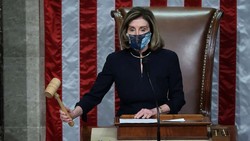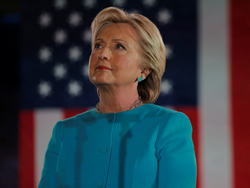Students Who Normally Disagree Come Together on Taxing of Millionaires
 Over the summer, Speaker of the House John Boehner and President Barack Obama held several talks to try to negotiate a long term deal on the deficit. They were making serious strides in a major compromise, which would have created the first concrete plan to solve our nation’s growing economic crisis. President Obama made a major political sacrifice by putting Medicare and Social security cuts on the table during the talks. In return, the President asked of the Speaker to include revenue into the deal. These included closing corporate tax loopholes, ending federal subsidies for oil companies which are recording record profits, and slight tax increases on those making over one million dollars a year. Those talks subsequently broke down.
Over the summer, Speaker of the House John Boehner and President Barack Obama held several talks to try to negotiate a long term deal on the deficit. They were making serious strides in a major compromise, which would have created the first concrete plan to solve our nation’s growing economic crisis. President Obama made a major political sacrifice by putting Medicare and Social security cuts on the table during the talks. In return, the President asked of the Speaker to include revenue into the deal. These included closing corporate tax loopholes, ending federal subsidies for oil companies which are recording record profits, and slight tax increases on those making over one million dollars a year. Those talks subsequently broke down.
The idea of tax increases in any amount had forced the Republican leaders to back down from any serious deal on the federal debt. Why had the Republicans backed down when they were so close to a deal which would have saved our country? The answer to that question is the pledge created by Grover Norquist (which almost every Republican politician has signed) states that whomever signs the pledge will never agree to increasing taxes at all. In return, the Grover Norquist led National Rifle Association or NRA, a Political Action Committee with the ability to spend unlimited amounts of money that will spend millions of dollars attacking Democrats challenging these same elected officials.
What people fail to recognize however, is the potential benefits of the increased revenue. By asking those who make the most money in our country to pay their fair share it will tremendously help our economy. By increasing taxes on millionaires and billionaires.
Congress can come up with an historic deal that can tackle our nation’s debt and put America back into a position to be a global powerhouse. By just coming up with a deal, stocks will increase dramatically. In Europe once a vague outline of austerity measures to solve their economic crisis were announced the stock markets jumped five percent. In the U.S. a much larger stock market will only be expected to increase even more then in Europe. Foreign investments will also rise.
Once our debt is tackled, companies abroad will begin investing in American startups allowing for more small businesses to grow, helping the economy. Once the debt crisis is solved our credit rating will go back up to AAA and businesses will begin to hire more employees allowing the unemployment rate to drop.
Most importantly with a deal in place and our federal budget balanced, the government can begin investing in our future. We can start to invest heavily in clean energy projects, reducing our addiction to foreign oil and becoming energy independent. Gas prices will plummet and our planet will thank us. Most importantly to students like us, the government can also help students pay back loans, or give out zero percent interest loans, something I am sure every Monmouth student could use.
Monmouth University Political Science major and member of the debate team Lexi Todd agrees, “It is now more important than ever for our nation to spread the wealth, especially with the increasing amount of defaults on student loans and the job market the way it is. Let’s face it enforcing a high tax on those already fortunate enough to afford a decent education is going to be the greatest way to get the ball rolling in terms of subsidizing universities like Monmouth. If we can gain support for these new tax policies, we can make the first step towards a lowered tuition rate.
The President’s job bill is also something which will be able to be paid for just by a simple increase in taxes for those who can afford them. With unemployment a huge problem in this country the only certainty to create jobs is having the federal government physically create them.
Republicans will argue that millionaires and billionaires are the job creators; however should we use this money to give to the rich and hope that may create some jobs with it or should we take the money and allow the federal government to directly create jobs.
The government can create construction jobs to help rebuild our crumbling infrastructure, teaching jobs for math and science teachers desperate for an opportunity, or engineering jobs to help create new efficient energy solutions.
Those against raising taxes on Americans who can afford it say that it will kill jobs and be bad for businesses. This argument however doesn’t take into account that the Bush tax cuts have been in effect for 10 years and our economy is not improving and that it was not enough to hold off a recession in 2008. In fact, many millionaires have come out since then and said that they took their Bush tax cut and spent it on a yacht built in Italy or on a dance floor to be installed in their basement, according to reports from Huffingtonpost.com.
This is extremely disheartening for the middle class that continues to suffer to make car payments no less buying a yacht.
So we must ask this question, do we keep the tax cuts in place and for millionaires to keep buying yachts in foreign countries, or should we raise revenue and allow our economy to grow and make sure that the United States of America stays the greatest nation in the world?
The poor economic state of the country has put tax policy on the top of the national agenda. In particular, the increase of tax on millionaires and billionaires has bred controversy. When the government is struggling with its limited revenue, it is difficult to see how lowering taxes, especially on those in a comfortable position to pay them, will help us out of this turmoil. If the current tax rate remains, then many middle class Americans will be left paying a higher tax rate than the wealthy and ultra-rich.
Overall, tax rates on the top bracket have been in serious decline since the 1960s’. According to a study conducted by Stanford University’s School of Political Science, in 1960 the top bracket was paying a Federal Income rate of 91% on all taxable income. Today, that number is staggeringly lower, with the official tax rate on the top bracket at about 3435%, according to the IRS. But that does not include certain loopholes such as being able to classify income as “carried interest” which enables a 15% bargaining tax rate as Mr. Warren Buffett points out in his 2011 NY Times piece “Stop Coddling the Rich.”
While our country is in such bad shape, and the middle and lower classes are being burdened so heavily with their federal and state taxes, it is unimaginable to think that billionaires and millionaires are evading the duty that all Americans are obligated to contribute to. It is truly unpatriotic.
Some of the “One percent” however understands this. Billionaire Warren Buffett has stated openly that his tax rate was substantially lower than the average middle class families. He has also advocated higher tax rates for the extraordinarily wealthy, and as it turns out his idea is not unpopular among that group.
According to a blog post by Robert Frank in the Wall Street Journal’s “Wealth Report,” survey published by the Spectrem Group stated that 68% of those with investments of one million dollars or more supported Buffett’s claim, and on top of that, 61% of individuals with net worth of five million dollars or more also supported higher taxes. The results seem to indicate that there is still a group of rich citizens that are willing to sacrifice to lift the burden off of those who truly cannot afford to pay higher tax rates.
“Job creators” is another term that has been utilized over the past year. Many supply-siders claim that if we cut taxes on the wealthy, they will be more inclined to hire new individuals with the saved revenue. That sounds logical enough, but if we examine the facts a little more closely we will see that it’s not always the case. According to the Bureau of Labor Statistics, the current unemployment rate in the U.S. is at about 8.5%, when the top bracket is supposed to be paying about 35% in income tax. In 1995, unemployment was hovering at about 5.6%, when the tax rate was at about 40% for the top bracket. According to that information, job creators are not motivated solely by their tax reduced tax rate.
As the American economy remains in its poor state, Congress along with wealthy Americans must realize that there cannot be tax disparities choking the middle class. It is not sustainable for federal revenue if billionaires are able to pay a true income tax rate of 15% while a middle class family’s pays twice that.
Raising taxes on this group of individuals has nothing to do with punishing success, it is simply about affluent Americans contributing like everyone else and not reaping the benefits of loopholes. This is truly about paying their fair share.


